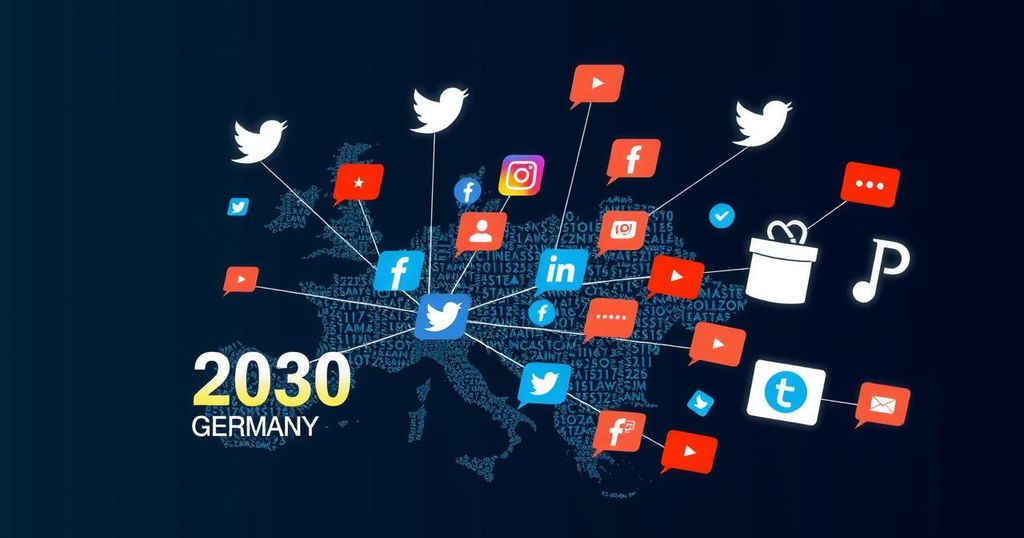The Role of Social Media in Shaping Germany’s Election Campaigns

Social media has significantly influenced Germany’s political climate, particularly with the rise of the populist AfD party. The effectiveness of platforms like TikTok in reaching voters underscores a wider trend towards polarization and misinformation. Experts caution about foreign influences and call for traditional parties to enhance their presence online to combat disinformation ahead of the federal elections.
Germany’s political landscape is facing increased challenges due to the rise of social media, particularly as traditional party leaders exhibit signs of apprehension regarding the populist Alternative for Germany (AfD). With significant electoral gains in state elections, the AfD’s adept use of platforms like TikTok to reach younger voters underscores a trend towards polarization in political discourse. Matthias Kettemann, an expert in internet regulation, highlights the difficulty in measuring social media’s precise impact on public opinion, yet acknowledges its growing prevalence in shaping democratic processes. This digital shift is exemplified by Vice Chancellor Robert Habeck’s return to the platform formerly known as Twitter after a lengthy hiatus, emphasizing the need for political figures to engage on social media to counteract dissenting voices. Experts are increasingly concerned about misinformation campaigns proliferated by both political adversaries and foreign actors, particularly as such tactics serve to polarize the electorate further. Interactions on social media are evolving into mudslinging that detracts from substantive policy discussions. For instance, Christian Democrat (CDU) leader Friedrich Merz condemned disinformation efforts targeting him, revealing the destructive nature of personal attacks in modern campaigning. Additionally, voters are increasingly obtaining their news from online sources, with studies indicating a preference for social platforms over traditional media. The involvement of foreign entities, particularly concerning disinformation from Russia, poses further challenges, prompting warnings about the potential threat these actions present to the upcoming elections. Regulatory bodies, such as the European Union, are striving to establish frameworks to mitigate online misinformation and ensure compliance from social media companies, although the implementation of these laws may not synchronize with the electoral schedule in Germany. In light of these complexities, Kettemann urges traditional political parties to intensify their social media presence to contest the narratives propagated by misinformation actors. The effective utilization of social media platforms is crucial for fostering informed voter engagement ahead of the significant federal elections.
As social media continues to permeate everyday life, its influence on political campaigns is becoming increasingly pronounced. In Germany, the rise of populist parties, notably the AfD, poses a significant threat to conventional political structures, where leaders are adapting to navigate the complexities of digital engagement. The dynamics of campaigning have shifted from traditional methods to reliance on social media for voter outreach, particularly amongst younger demographics. Disinformation and misinformation play critical roles in shaping electoral outcomes, compelling politicians and political parties to rethink their strategies in an age defined by rapid digital communication. Furthermore, the role of foreign interference highlights the need for comprehensive regulation to maintain the integrity of democratic processes in Germany.
In conclusion, social media’s impact on Germany’s electoral landscape cannot be overstated. As traditional parties grapple with the challenges posed by populism and misinformation, engaging effectively on digital platforms has become essential. The call for heightened scrutiny and regulation of social media is critical in ensuring a fair electoral process. Political leaders must prioritize authentic engagement with voters to combat disinformation, paving the way for informed decision-making in the forthcoming elections.
Original Source: www.dw.com








